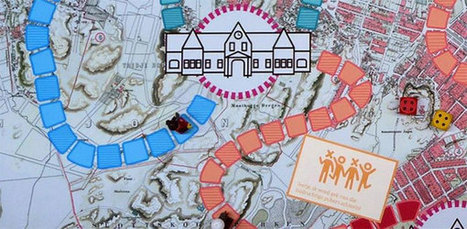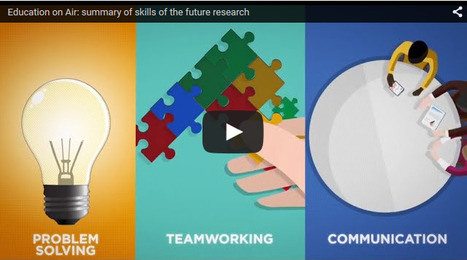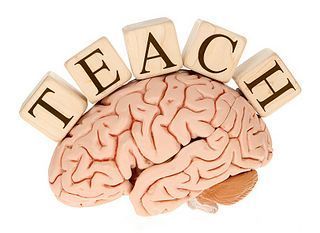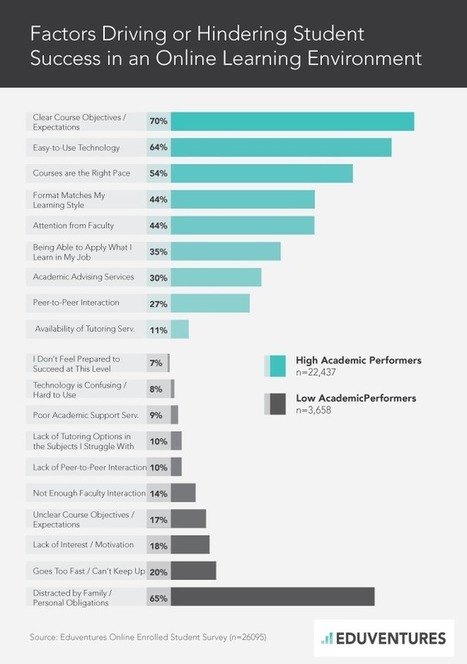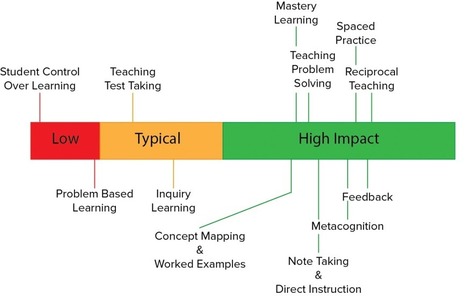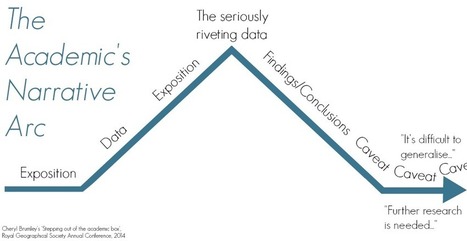Get Started for FREE
Sign up with Facebook Sign up with X
I don't have a Facebook or a X account

 Your new post is loading... Your new post is loading...
 Your new post is loading... Your new post is loading...

Dr. Deborah Brennan's curator insight,
June 7, 2015 5:56 PM
Preparing our students with the necessary skills for post-secondary career and college is critical, but especially for our poverty students. Too often, school is the only venue to provide these thinking, collaboration, and problem solving skills. However, many poverty schools under the pressure of standardized testing are stuck in a remediation routine of filling gaps in content, reading, and math. We must provide time for teachers to collaborate and plan integrated lessons that integrate these higher level thinking skills into their content areas. 
Katie Catania's curator insight,
August 5, 2015 9:10 AM
What skills do learners need today to be prepared to be a leader as they move through school and into careers? Google commissioned a study and this post provides a short video that discusses key findings as well as a link to the final report, Driving the Skills Agenda: Preparing Students for the Future. The Executive Summary provides a number of key findings, including the ones listed below. (The text below is quoted from the report.) * Problem solving, team working and communication are the skills that are currently most in demand in the workplace. * Education systems are not providing enough of the skills that students and the workplace need. * Some students are taking it into their own hands to make up for deficiencies within the education system. * Technology is changing teaching, but education systems are keeping up with the transformation rather than leading it. The full report provides additional information, including a number of visuals as well as case studies. As educators it is important that we consider the skills our learners will need in the future, and this report provides insight into some of what will be needed.

Becky Roehrs's curator insight,
March 8, 2015 10:18 PM
Mindfulness supports social-emotional learning (SEL), This article defines mindfulness and provides quick summaries of 6 research studies that found a range of k-12 students benefited from mindfulness activities, weeks after the research study ended. Plus, the article highlights six different activities you can use with your students: http://cft.vanderbilt.edu/guides-sub-pages/contemplative-pedagogy/ 
James J. Goldsmith's curator insight,
March 9, 2015 11:31 AM
From the article: "We now know that neuroplasticity allows us to make profound changes in the way our bodies and minds function at any age. So helping students learn to train their bodies and minds through the use of mindful awareness practices can make a real and lasting difference." Some interesting points raised (and how would things be different if we all paused 2 seconds to think before responding to someone?)

Matthew M.'s curator insight,
March 4, 2015 12:29 AM
I think that this scoop relates to our readings this week because it talks about The ability to obtain, assimilate and apply the right knowledge effectively, will become a key skill in the next century. Our ability will no longer be judged solely by qualifications gained in the past, but will also be assessed by our capacity to learn and adapt in the future. 
Patricia Stitson's curator insight,
March 4, 2015 2:48 PM
Point taken - in fact I thought that the given was that the flipped classroom style encouraged more active learning in class - where the teacher could mentor and where they were learning with their collaborators.
What is lacking for me in this article is retention level and what they are learning while they are learning. Are they just learning the skills and facts or are they also learning how collaborate with other using the facts. Did they just test once for these 'learning outcomes' mentioned or will retention be longterm.
I guess I need to read the study!

ChristopherBell's curator insight,
January 14, 2015 7:33 PM
This is very timely for us at International School Bangkok as we are re-visiting curriculum and technology integrations. Just had to share this infographic from ISTE. 
Ricard Garcia's curator insight,
February 12, 2015 2:24 AM
How to implement a new classroom and learning paradigm: A nice outline |

Fiona Harvey's curator insight,
July 22, 2015 5:09 AM
Interesting series of questions around ideas (and misconceptions) about MOOCS

Fiona Harvey's curator insight,
June 26, 2015 10:24 AM
Essential reading to get an understanding or 'sense' of where government is at (UK) and also some tech leaders. Worth referring to.

Fiona Harvey's curator insight,
March 1, 2015 1:21 PM
I have great respect for Julie Wintrup and Kelly Wakefield with their work on student engagement (see RAISE network) - this report in collaboration with the HEA provides some valuable research for engagement but it would be interesting to see how this develops. It mentions assessment as a form of engagement - but our moocs are not assessed. Perhaps this means that we may be assessing in the future. |





